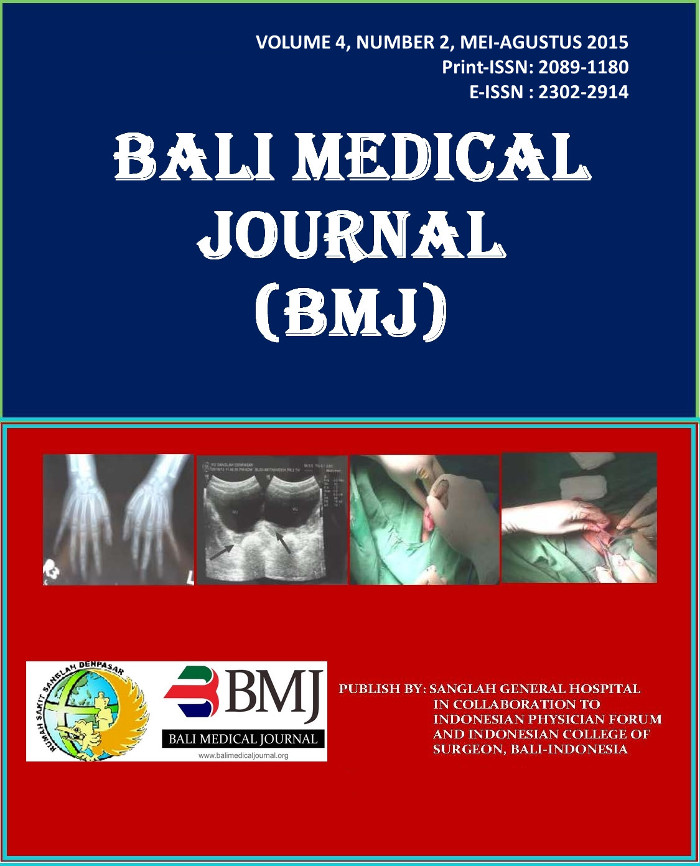THERAPEUTIC MILD HYPOTHERMIA TOWARDS BLOOD LACTATE LEVELS AND GLASGOW COMA SCORE IN SEVERE TRAUMATIC BRAIN INJURY
Abstract
Background: Raised body temperature is a common occurrence after severe traumatic brain injury (TBI). TBI is accompanied by regional alterations of brain metabolism, reduction in metabolic rates and possible energy crisis. This metabolic disturbance reflected by increase and accumulation of the brain lactate levels. The study aimed to evaluate the effect of therapeutic mild hypotermia (TMH) on lactate levels and GCS (Glasgow Coma Score) of severe TBI. Methods: Fourthy patients with TBI were randomly divided into normothermia (n=20) and mild hypothermia (n=20) group. Body temperature of hypothermia group was maintained at 35°C for 72 hours. Blood lactate level and GCS were determined before and after hypothermia therapy ( on 3th and 7th day). Results: The mean lactate {5.370 vs 4.025 mmol/L, p<0.001 (on 3th day); 5.070 vs 2.775 mmol/L, p<0.001(on 7th day)}. TMH group was lower than in the normothermia group after TMH. The mean GCS was higher in TMH group than in the normothermia group {8.45 vs 7.80, p < 0.002 (on 3th day); 9.85 vs 8.25, p<0.005 (on 7th day)}. Conclusion: There was a significant correlation between blood lactate level and GCS according to TMH. Mild hypothermia therapy improves neurologic outcomes in patients with severe TBI, and reduction in blood lactate level may be partially responsible for the improved outcomes.Downloads
Download data is not yet available.
Published
2015-08-28
How to Cite
PARDAMEAN, D. T.; PRASETYO, E.; OLEY, M..
THERAPEUTIC MILD HYPOTHERMIA TOWARDS BLOOD LACTATE LEVELS AND GLASGOW COMA SCORE IN SEVERE TRAUMATIC BRAIN INJURY.
BALI MEDICAL JOURNAL, [S.l.], v. 4, n. 2, aug. 2015.
ISSN 2302-2914.
Available at: <https://ojs.unud.ac.id/index.php/bmj/article/view/21705>. Date accessed: 21 feb. 2026.
Issue
Section
Articles
Keywords
severe; brain; metabolism; reduction; improved.


